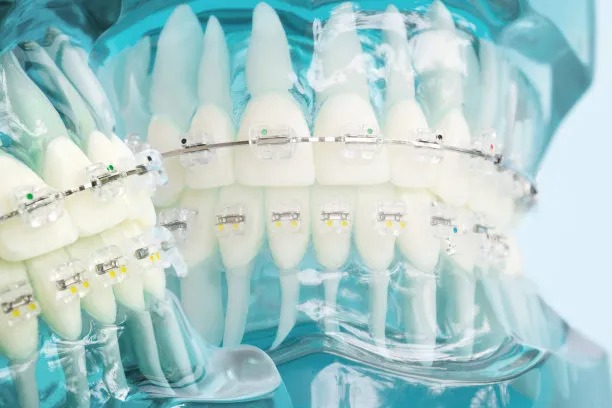Summary: Periodontal disease, commonly known as gum disease, poses significant challenges not only to oral health but also to overall well-being. This article explores the intricate relationship between periodontal disease and systemic health issues, such as cardiovascular diseases, diabetes, and respiratory problems. Furthermore, it delves into effective prevention strategies, emphasizing the importance of regular dental check-ups, oral hygiene practices, and lifestyle choices. By understanding the impact of periodontal disease on the body and implementing proactive measures, we can enhance our overall health while preserving our smiles. In essence, this exploration aims to raise awareness about the significance of oral health in maintaining holistic well-being.
1. The Connection Between Periodontal Disease and Systemic Health

Maintaining oral health is crucial for overall physical well-being, as periodontal disease has been linked to various systemic health issues. Research indicates that individuals with periodontal disease have a higher risk of developing conditions such as cardiovascular disease. The infections and inflammation caused by gum disease can lead to increased arterial plaque and heart complications.
Diabetes is another significant health concern associated with periodontal disease. The bi-directional relationship means that not only can poor periodontal health exacerbate diabetes, but uncontrolled diabetes can aggravate gum disease as well. Blood sugar levels remain higher in individuals with poor oral health, complicating diabetes management.
Additionally, recent studies suggest a connection between periodontal disease and respiratory illnesses. Oral bacteria can be aspirated into the lungs, causing complications such as pneumonia, particularly in individuals with weakened immune systems. Thus, the interplay between gum health and overall health is vital to consider.
2. Early Signs of Periodontal Disease
Recognizing the early signs of periodontal disease is essential for effective intervention. Symptoms such as swollen gums, persistent bad breath, and bleeding during brushing or flossing are all indicators of potential gum problems. Understanding these signs can prompt timely visits to the dentist.
Another significant indicator is gum recession, which can lead to exposed tooth roots and increased sensitivity. Individuals may also experience changes in bite alignment or tooth mobility as the disease progresses. Overall, being vigilant about these symptoms can lead to early diagnosis and treatment, ultimately preventing severe complications.
Regular self-assessments and awareness about ones oral health can make a difference. When individuals are informed about the signs and symptoms, they are more likely to seek care promptly, reducing the risk of extensive periodontal damage.
3. Effective Prevention Strategies for Periodontal Disease
Preventing periodontal disease requires a multifaceted approach, starting with good oral hygiene practices. Brushing at least twice a day, flossing daily, and using an antimicrobial mouthwash can significantly reduce the likelihood of gum disease. Ensuring that food particles and plaque are consistently removed is key to maintaining gum health.
Regular dental visits for professional cleanings and check-ups are equally vital. Dentists can identify early signs of periodontal disease and provide necessary treatments to manage any developing issues. These visits also offer an opportunity for personalized advice on maintaining oral hygiene based on specific needs.
Moreover, lifestyle choices play a significant role in prevention. A balanced diet rich in vitamins and minerals can bolster gum health. Flossing can be complemented with a healthy limit on sugars and refined carbohydrates, which can contribute to bacterial growth. Quitting smoking is also crucial, as smoking weakens gum tissue and impairs healing.
4. The Role of Professional Care in Managing Periodontal Disease
While at-home care is foundational, professional dental care plays an irreplaceable role in managing periodontal disease. Dentists are equipped to perform deep cleanings known as scaling and root planing, which remove bacteria and tartar build-up below the gum line.
Additionally, they can recommend further treatments, such as antimicrobial therapies or even surgical options for advanced gum disease. Each patients needs are unique, and ongoing communication with a dental professional ensures tailored care.
Furthermore, education from dental care providers empowers patients to understand their conditions better and encourages adherence to treatment plans. Building a preventive partnership between patients and their dentists can significantly enhance periodontal health over time.
Summary:
The exploration of periodontal disease reveals its significant implications for overall health, illustrating how oral health directly influences numerous systemic conditions. By being proactive in recognizing signs, practicing effective prevention strategies, and engaging in professional oral care, individuals can mitigate the risks associated with this prevalent disease.
This article is compiled by Vickong Dental and the content is for reference only.
Vickong Dental
Vickong Dental is a large medical group established in Hong Kong in 2008 by professors from well-known medical universities in Guangdong and Hong Kong, as well as medical doctors from key national '985' universities (including Master's supervisors and senior professors). The chain of branches brings together expert dentists with PhDs and Master's degrees from Hong Kong and Mainland China, committed to providing high-quality dental treatment.
"Vickong Dental Practices the University Motto of 'Healing and Serving Society,' with a Stable Operation for Sixteen Years. It Has Been honored with Hong Kong Enterprise Leaders's Choice,' and is a Global Trusted Implant Center for the Nobel Implant System. Recommended by Hong Kong Metro Broadcast and Guangdong Television, it Serves Customers from Over Thirty Countries and Regions, Gaining the Trust and Favor of Citizens from the Guangdong-Hong Kong-Macau Greater Bay Area and Surrounding Cities.

Thousands of customers' unanimous praise
The most recognized and highly recommended dental service by customers in the Guangdong-Hong Kong-Macau Greater Bay Area
We Ensure You Receive Detailed Care and Attention Here
Hong Kong standards, Shenzhen prices, Your Trusted English-speaking dentists

Vickong Dental Medical-Grade Instrument Disinfection Process
Vickong Dental Medical-Grade Instrument Disinfection Process

Vickong Dental Chain: A Warm and Comfortable Environment for Treatment






Appointment Hours

Q&A
Why choose Vickong Dental?
Vickong Dental practices the university motto 「Medicine to Benefit Society」, with each branch bringing together highly qualified dentists with doctoral and master’s degrees from Hong Kong and the Mainland, and has maintained seventeen years of steady operation。Recipient of 「2024 Hong Kong Enterprise Leaders Brand」, 「2025 Hong Kong Enterprise Leaders Brand」, a Nobel Biocare Global Trusted Implant Center, and a brand recommended by Metro Radio Hong Kong and Guangdong TV。
To date, we have served customers from more than thirty countries and regions,earning exceptionally high word-of-mouth recognition and trusted recommendations from residents across the Guangdong-Hong Kong-Macao Greater Bay Area and surrounding cities
We have eight major branches in Zhuhai、Shenzhen,and a consultation and service assurance center in Hong Kong,so you can book a free consultation at any time for any questions,which is very reassuring.
If I do not accept the quotation after the CT scan, will I be charged??
No! As long as the actual treatment has not started, you will not be charged any fees.
Will there be any additional charges during the treatment process?
No, there won’t be any additional charges. Before treatment begins, we will clearly explain the treatment plan and its corresponding fees. Only after the patient agrees and signs the consent form will we proceed with the dental service.
Can I pay in Hong Kong dollars?
Yes. Vickong Dental accepts payment in Hong Kong dollars. The amount will be converted based on the exchange rate of the day, and the applicable rate will be clearly communicated to you in advance.
Can I reschedule my appointment at any time?
Yes. Please contact us via **WeChat** or **WhatsApp** as early as possible, providing your original appointment time and details, along with your preferred new date and time slot for rescheduling.













